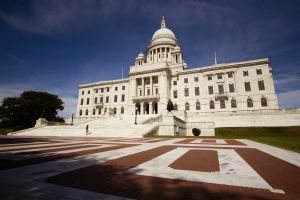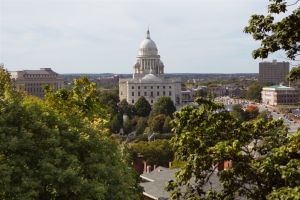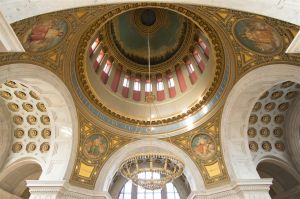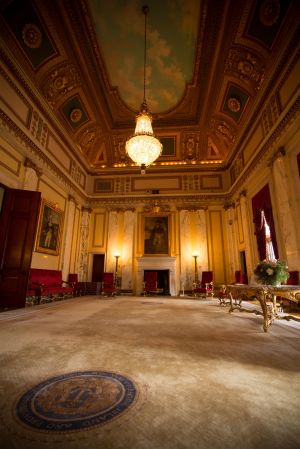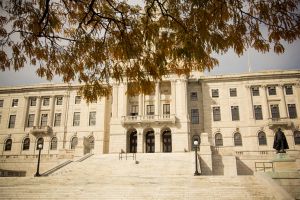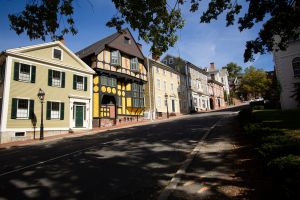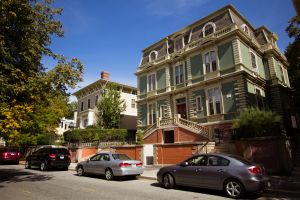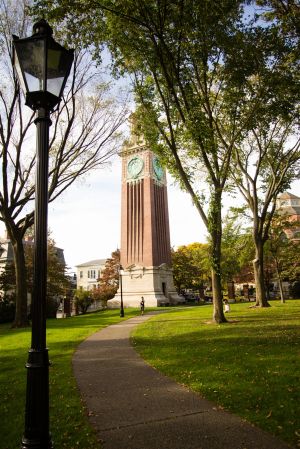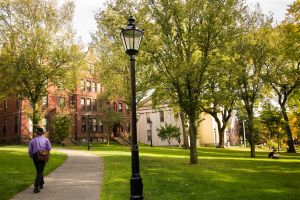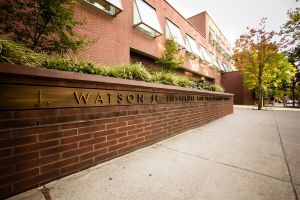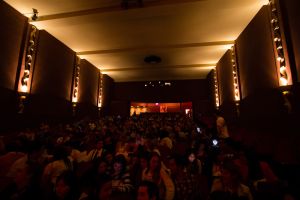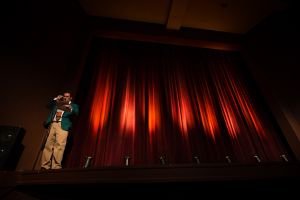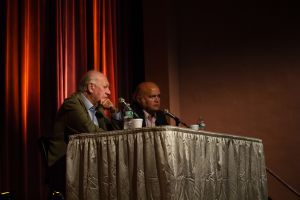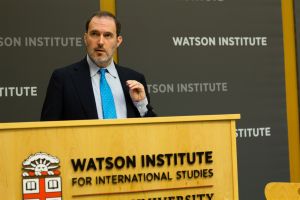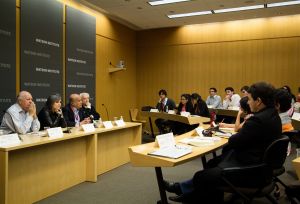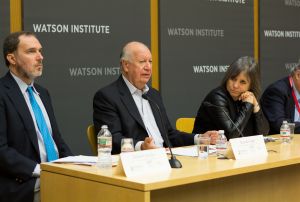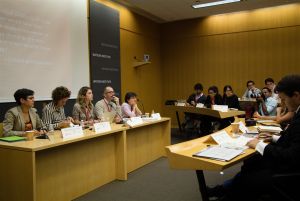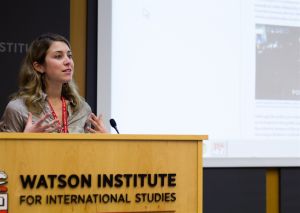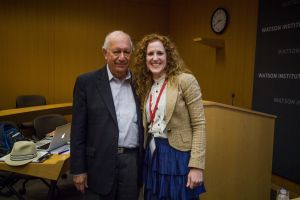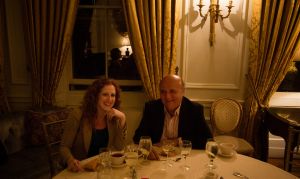Last week, I participated as a panelist and speaker in Brown University’s Social Media and Political Change in Latin America and the Middle East Conference. Brown University’s Watson

At Brown University’s Social Media and Political Change conference. I spoke on Egypt’s Arab Spring street art. Photo: Genevieve Hathaway Photography.
Institute asked me to speak on the Arab Spring street art movement in Egypt. Over the past two years, I’ve been completing a project called War on Walls — researching and photographing Egypt’s most important, iconic, provocative and creative Arab Spring street art. I was honored to be able to share this project and topic I am passionate about with conference attendees and the interwebs via the webcast the Watson Institute set up to live stream the conference. (You can still catch the conference in its entirety here: http://mediacapture.brown.edu:8080/ess/echo/presentation/4a890168-7e38-49f9-a691-80ab4684b3e9)
Brown University is a beautiful campus located close to the center of Providence, Rhode Island. I was lucky to visit on a sunny Fall day. The leaves were changing on the trees, filling the streets with bright yellows, tawny reds and burnt oranges. I love old architecture. I spent quite a bit of time during my stay in Providence wandering the 400 year old cobblestone streets lined with elegant colonial mansions painted an assortment of pastel and bright colors. Brown University’s main campus is comprised of a series of stately brick and columned buildings organized around grass courtyards.
The conference began with the showing of the Film “NO”, which followed the Chilean NO campaign that ousted Chilean dictator Augusto Pinochet. Former Chilean President Ricardo Lagos and NO campaign director Genaro Arriagada. Both spoke about the NO campaign in Chile.

The first panel of the conference with speakers Ricardo Lagos, Diamela Eltit, Jorge Arrate, and Genaro Arriagada. Photo: Genevieve Hathaway Photography.
The next morning, the conference continued with a panel discussing political change in Chile. The panel included former President of Chile and Professor-at-Large of Brown University Ricardo Lagos, Director of the NO campaign and former Chilean Ambassador to the US Genaro Arriagada, Chilean writer and Distinguished Global Professor of Creative Writing in Spanish at New York University Diamela Eitit, and former Chilean Minister Jorge Arrate. My draw dropped when I first learned of that powerhouse panel. And they delivered riveting discussions. The panel discussed how change took place in Chile and how it was or was not successful.
The second panel covered the current situation in Latin America and consisted of Claudia Lopez from Northwestern University, Ted Henken from Baruch College CUNY, Taylor Barnes a
freelance journalist in Brazil, and Alexandra Ulmer from Reuters Chile. Claudia discussed the uneven media situation in Columbia and a lack of a voice for those who criticized the government. In Columbia, there’s a concentration of media and economic power. Self censorship is also a problem. Social Media though has become a way for other opinions and independent reporting to get heard. Ted then spoke on how Cuba’s blogosphere has become an alternative media source to the state-controlled media. One challenge the bloggers face is that there is very limited internet in Cuba, so these blogs gain more attention outside of Cuba. There is some thought that a boomerang effect may be going on — these bloggers are being read outside of Cuba and their information is being brought back into Cuba through people who visit Cuba or through family and friends of Curbans. Taylor gave an interesting presentation on how twitter was being used in Brazil by both the independent news organizations and the police to report on events in real time. She also discussed that newspapers and media outlets were able to disprove false police claims through the images and videos posted on social media. Alexandra then ended the panel with a presentation on the importance of examining Chile’s history when trying to understand it’s current situation and socio-political events.
My panel was the third panel of the day. I was first up to speak on Egypt’s Arab Spring street art. My fellow panelists were Nukhet Sandal from Ohio University, Sa’ed Adel Atshan from Brown University and Genaro Arriagada who spoke this time on his work in Egypt. My fellow speakers were all extremely knowledgeable on their topics and I wish we could have had a full day to discuss how social media and alternative forms of communication were used in the Middle East. Nukhet spoke on social media and street art in Turkey. Turkish protesters at one point during the Arab Spring used kickstarter to raise over $100,000 to place a full page ad in the New York times telling people about why they were protesting. It was their way to get around the state controlled media and it worked beautifully. That kickstarter campaign was the largest crowd-funded political activism campaign to date and it poignantly demonstrated the global world we live in and the power of social media. Sa’ed covered how social media was utilized in Iran to spread news about the government trying to suppress protesters. And Genaro wrapped up with panel with a discussion on his work in Egypt. Genaro was brought in by Egypt’s revolution leaders 5 times over the course of 2011 to advise them on how to transition from ousting Mubarak to forming a democracy. It was a fascinating look at what was going on behind-the-scenes during Egypt’s early days of its Arab Spring.
The three panels were engaging, informative and gave an inside look into the current revolutions and socio-political movements that are sweeping much globe, many of them effectively utilizing social media to bring about change. The conference is still available to watch. You can check it out here: http://mediacapture.brown.edu:8080/ess/echo/presentation/4a890168-7e38-49f9-a691-80ab4684b3e9
Here are a collection of my photos from the conference and around Providence.

